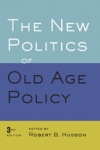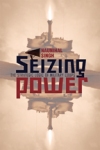By Brendan Coyne
 As people across the world grapple with such issues as the Islamic State and continued hostilities between Palestinians and the Israeli state to institutionalized discrimination and militarized police to climate change and unstable governments, the world’s largest collection of political scientists meets this week in Washington, D.C. We’re happy to be here supporting the vital scholarship done by members of the American Political Science Association and showcasing the books and journals we publish in support of the field’s many disciplines. Here’s a handful of highlights of what’s new in political science at America’s oldest university press. Come on over to booth #501 to see everything we’re exhibiting this year. All books are 30% off using code HEZE.
As people across the world grapple with such issues as the Islamic State and continued hostilities between Palestinians and the Israeli state to institutionalized discrimination and militarized police to climate change and unstable governments, the world’s largest collection of political scientists meets this week in Washington, D.C. We’re happy to be here supporting the vital scholarship done by members of the American Political Science Association and showcasing the books and journals we publish in support of the field’s many disciplines. Here’s a handful of highlights of what’s new in political science at America’s oldest university press. Come on over to booth #501 to see everything we’re exhibiting this year. All books are 30% off using code HEZE.
 25 years of taking the temperature of democracy around the world: the Journal of Democracy celebrates its silver anniversary. Cited in The New York Times and The Wall Street Journal, Journal of Democracy is an influential international forum for scholarly analysis and competing democratic viewpoints. Its articles have been widely reprinted in many languages and the books that come out of the Journal are used in classrooms, government and NGO offices, and think tanks around the world.
25 years of taking the temperature of democracy around the world: the Journal of Democracy celebrates its silver anniversary. Cited in The New York Times and The Wall Street Journal, Journal of Democracy is an influential international forum for scholarly analysis and competing democratic viewpoints. Its articles have been widely reprinted in many languages and the books that come out of the Journal are used in classrooms, government and NGO offices, and think tanks around the world.
 Entropy and international relations. Called “the most original and thought-provoking forecast of future world politics to be published in recent years” by G. John Ikenberry, Randall L. Schweller’s new book, Maxwell’s Demon and the Golden Apple, tackles the question: What will follow the American century? Looking through the lens of entropy, the answers Schweller finds are unsettling.
Entropy and international relations. Called “the most original and thought-provoking forecast of future world politics to be published in recent years” by G. John Ikenberry, Randall L. Schweller’s new book, Maxwell’s Demon and the Golden Apple, tackles the question: What will follow the American century? Looking through the lens of entropy, the answers Schweller finds are unsettling.
 From bullets to ballots. Huffington Post named Armed Political Organizations, by Benedetta Berti, on of the best political science books of 2013, and it’s no wonder why. Berti’s examination of how and why some violent actors stop shooting and start voting is based on an innovative framework that advances our understanding of the integration of insurgents into the political process. With the latest battle between Israel and Palestinians in Gaza on hold, smart leaders on all side would be well advised to look to Berti’s work for insight on moving forward.
From bullets to ballots. Huffington Post named Armed Political Organizations, by Benedetta Berti, on of the best political science books of 2013, and it’s no wonder why. Berti’s examination of how and why some violent actors stop shooting and start voting is based on an innovative framework that advances our understanding of the integration of insurgents into the political process. With the latest battle between Israel and Palestinians in Gaza on hold, smart leaders on all side would be well advised to look to Berti’s work for insight on moving forward.
 Pain is political. Pain, historian and public affairs scholar Keith Wailoo‘s latest book, takes us on a tour of the modern history of the politics behind pain relief in America. If this isn’t a subject you’ve given a lot of thought to previously this book will be an eye-opener, as Wailoo explains how the intricate and at-times contradictory-seeming maneuvering of groups from war veterans to the American Medical Association has played out historically and politically. But don’t take our word for it, take Harvard University’s Arthur Kleinman’s instead: “No other work I know of sustains such a macro-analysis while attending to pain’s medical, moral, and media significances. And reading it hurts not—and for policy makers might even be therapeutic! Bravo!”
Pain is political. Pain, historian and public affairs scholar Keith Wailoo‘s latest book, takes us on a tour of the modern history of the politics behind pain relief in America. If this isn’t a subject you’ve given a lot of thought to previously this book will be an eye-opener, as Wailoo explains how the intricate and at-times contradictory-seeming maneuvering of groups from war veterans to the American Medical Association has played out historically and politically. But don’t take our word for it, take Harvard University’s Arthur Kleinman’s instead: “No other work I know of sustains such a macro-analysis while attending to pain’s medical, moral, and media significances. And reading it hurts not—and for policy makers might even be therapeutic! Bravo!”
 Old age policy in America. Now in its third edition, Robert Hudson’s The New Politics of Old Age Policy not only explains the politics behind the country’s age-based programs and describes how those programs work but also assesses how well—or poorly—they meet the growing and changing needs of older Americans. Featuring new chapters focusing on financial security and retirement in the context of the Great Recession, diversity and inequality in aging populations, and implications of the Affordable Care Act, this book is a vital tool for understanding the politics of aging in America.
Old age policy in America. Now in its third edition, Robert Hudson’s The New Politics of Old Age Policy not only explains the politics behind the country’s age-based programs and describes how those programs work but also assesses how well—or poorly—they meet the growing and changing needs of older Americans. Featuring new chapters focusing on financial security and retirement in the context of the Great Recession, diversity and inequality in aging populations, and implications of the Affordable Care Act, this book is a vital tool for understanding the politics of aging in America.
 Game theory and coup dynamics. In Seizing Power, Naunihal Singh provides the first book-length analysis of why some coups work and others fail. Called “the best piece of social science research on military coups so far” by Stathis Kalyvas of Yale, this volume uses coordination game to understand coups and show that, above all else, military dynamics are the most accurate predictors of any given coup’s success.
Game theory and coup dynamics. In Seizing Power, Naunihal Singh provides the first book-length analysis of why some coups work and others fail. Called “the best piece of social science research on military coups so far” by Stathis Kalyvas of Yale, this volume uses coordination game to understand coups and show that, above all else, military dynamics are the most accurate predictors of any given coup’s success.
 Digital media and democracy. The free flow of information online is supposed to enable people to be more active and knowledgeable participants in democratic governance. But as Catie Snow Bailard shows in Democracy’s Double-Edged Sword, access to information does not necessarily ensure that democracy will automatically flourish. Democratization specialists especially will appreciate the two new theories on which Bailard’s work rests, mirror-holding and window-opening.
Digital media and democracy. The free flow of information online is supposed to enable people to be more active and knowledgeable participants in democratic governance. But as Catie Snow Bailard shows in Democracy’s Double-Edged Sword, access to information does not necessarily ensure that democracy will automatically flourish. Democratization specialists especially will appreciate the two new theories on which Bailard’s work rests, mirror-holding and window-opening.
Brendan Coyne is associate sales manager at the Johns Hopkins University Press and will be representing JHUP at the APSA meeting in Washington from August 28 to 31.

